
My Name is Elise D’Amico and I am a PhD candidate at the Department of Political Science (Global Politics) with my dissertation specializing in the link between climate and conflict through migration. In the Summer of 2019, I visited Istanbul, Turkey and Athens, Greece. I went to Istanbul to attend a conference on migration and migrant integration policy, as this has been my area of study throughout my Master’s and Doctoral degrees. Following my stay in Turkey, I wanted to work hands on with refugees in order to fulfill my compassionate nature as well as to synthesize my research of refugees with their reality. The refugee camp that I worked at was Camp Eleonas in Athens, Greece.

Although I did a number of tasks as a volunteer at the camp, my main job was teaching English. I taught a class of children ages 10-14 with varying levels of English proficiency, mostly poor. I frequently had to say “No Arabiya in the classroom!” Nevertheless, the Arabic language and culture were parts of my daily life while working at the camp. I got well acquainted with the language when prompted to explain things to Arabic speakers for various purposes. For example, many of the older Arab women were not able to read so when I went around to the various containers (which were their places of residence as can be seen below) to inform them of an event going on at the camp, I had to use key Arabic words to get my point across, for example, “Ta’aam fii alma’ab.”
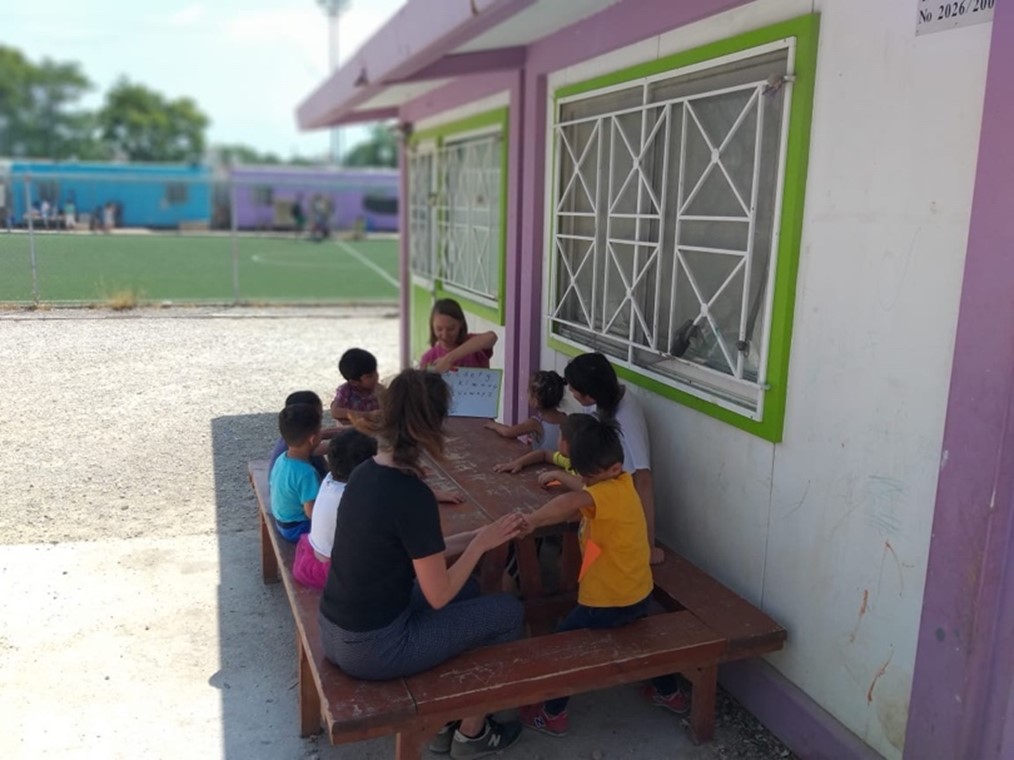
My female students had attached to me very quickly. I noticed hospitality like I had never seen before when they took me home to meet their families after class. Without fail, the family members would invite me in for tea or food. Because of these families’ refugee status, they had little money, resources, and opportunities and nevertheless they were willing to share what they did have. With the immense levels of greed and excess that I see in the West, particularly in the United States, it was refreshing to see such selflessness. I knew that I would struggle returning home, and I did, but I am grateful for my experience with these giving, kind, and hopeful people. I intend to return to refugee camps in the future for both volunteering and research endeavors and the knowledge of the Arabic language will greatly assist me in my pursuit on this path.
`
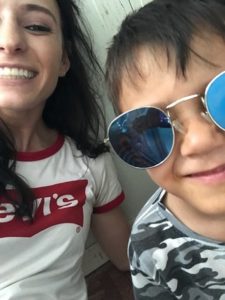
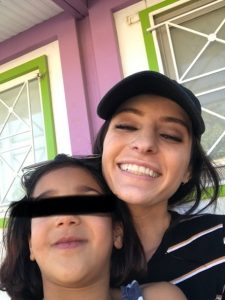
During my time at the camp, I took advantage of an elementary Arabic course that was offered to the small children. It was taught by a refugee friend that I had made at the camp and he invited me to the lessons so that I could learn alongside the children. It was quite a comical ordeal because bright and early, I would be sitting in a room with 20-30 yelling and rambunctious 4-5 year olds and I would be intently listening and working on my workbook amongst them. There were times that I had to shift my role between assisting the teacher in trying to get them organized and attentive and being the pupil myself. While doing verbal exercises, these little ones helped me with my pronunciation and I truly loved every moment of it. These bi- and tri-lingual children inspired me.
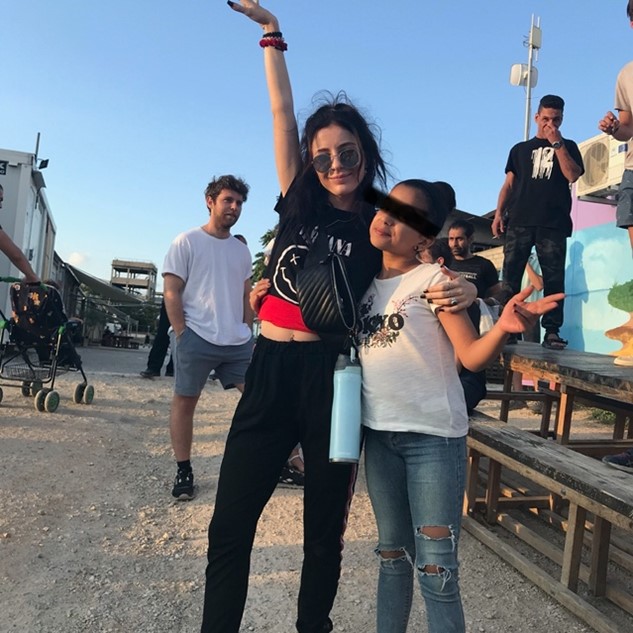
Eventhough there were many behavioral challenges that I experienced with these children due to trauma and general uncertainty, I found that their true natures were of love and gratitude which I perceived was related to the Islamic nature of their upbringing with the Quran’s teachings on love. They all merely wanted to be heard and I was more than happy to oblige. A challenge for me was the cultural gender norms that I had to abide by while at the camp. For example, in 100-degree humid heat, I had to cover my shoulders and wear long pants while the male volunteers wore shorts and tanks.
While this was seriously unenjoyable for me, I empathized with the women that had to wear that and more. While I respect the religious purposes of such norms, it was quite a shock to experience the implications first-hand. This was an important experience for me to breech my comfort zone as I’ll likely abide by similar rules in my volunteer and research endeavors moving forward.
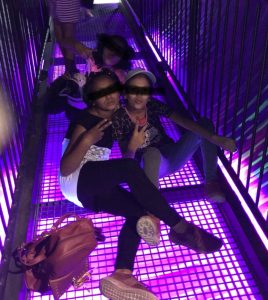
At the end of my time volunteering at the camp, I truly did not want to go. I felt so deeply for these people that were so much less fortunate than I and I did not want to return to my privileged life suffused with guilt that I could not do more for the refugee population. My students had even thrown me a party where the girls gave me all sorts of little bracelets and trinkets. This reinforced the already evident value of generosity that this culture shared even while in such a destitute state. I was extremely humbled by the experience and it only solidified my desire to do research that will help these people.
